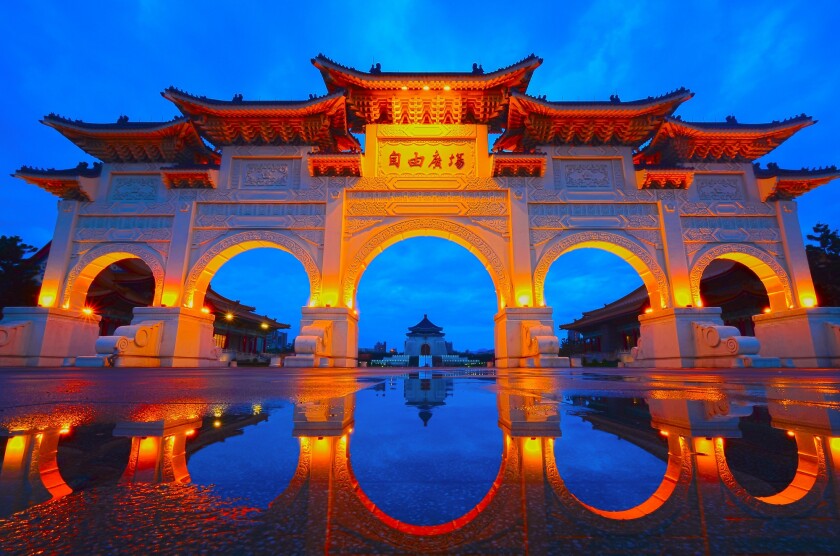In Taiwan, the IP and Commercial Court (formerly the Intellectual Property Court) is vested with jurisdiction over first instance and second instance civil actions arising out of IP rights. However, the jurisdiction of this nature is not exclusive. In order for the IP civil actions to be heard as concentrated as possible by a specialised court, there is a so-called ‘principle of preferential jurisdiction’.
Under this principle, the IP and Commercial Court has priority over ordinary courts to exercise jurisdiction, and ordinary courts should transfer IP civil actions to the IP and Commercial Court, with the exception of the following two scenarios:
Where the two parties have both expressly agreed that an ordinary court has jurisdiction over the case (consensual jurisdiction); or
Where the plaintiff files an action with an ordinary court and the defendant fails to raise any objection to the jurisdiction (implied consensual jurisdiction).
In practice, there has been a general consensus that the principle of preferential jurisdiction applies to first instance IP civil actions. However, there were divided opinions regarding the IP and Commercial Court’s jurisdiction over the second instance cases, particularly the cases which were accepted and tried by district courts of first instance based on consensual or implied consensual jurisdiction.
Article 19 of the Intellectual Property Case Adjudication Act originally stipulated that “…any appeal against a ruling rendered by the first instance court on an intellectual property case may be lodged with the Intellectual Property Court...”
In 2014, this was amended to read “[a]ny appeal against a ruling rendered by the first instance court on an intellectual property case shall be lodged with the Intellectual Property Court having jurisdiction.”
Since it is not explicitly stated in the amended stipulation that the IP Court has exclusive jurisdiction over appeals against court rulings, some judges took the position that appeals from district courts should be heard by the High Court having jurisdiction, while others opined that such appeals should be filed with the IP and Commercial Court regardless of the parties’ consent to have the appeal heard by the High Court.
In 2019, the Supreme Court rendered ruling no. 381 articulating its view on the appellate jurisdiction of the IP and Commercial Court over second instance cases. The Supreme Court referred to Article 19 of the Intellectual Property Case Adjudication Act as the main legal basis and made the following observations:
Article 19 of the Intellectual Property Case Adjudication Act was amended on June 4 2014 to read “[A]ny appeal against a ruling rendered by the first instance court on an intellectual property case shall be lodged with the Intellectual Property Court having jurisdiction.”
In the legislative reasons for the amendment, it was clearly indicated that “[A]t present, the first instance IP civil actions are not subject to the exclusive jurisdiction of the Intellectual Property Court. If such actions are brought under the jurisdiction of ordinary courts, they would likewise be heard and adjudicated by specialised IP units in district courts. In order to unify legal opinion, appeals against rulings of district courts on the IP civil actions ‘should’ be heard by the specialised IP and Commercial Court. However, it is unclear in the language of Item 2 of the current Article 19 regarding the court having jurisdiction over appeals against rulings of district courts. Therefore, an amendment to Item 2 of said article is being considered to avoid ambiguity or controversy.
As shown above, although the amended Article 19 does not specifically include the word ‘exclusive’, it is sufficient to recognise from the legislative intent that only the IP and Commercial Court has substantive exclusive jurisdiction over appeals against first instance rulings on IP civil actions so as to achieve the aim of unifying legal opinion. Therefore, consensual or implied consensual jurisdiction is not applicable to second instance cases.
Between 2020 and 2022, the High Court rendered three rulings on the jurisdictional issue following the Supreme Court’s interpretation of Article 19 expressed in ruling no. 381.
Of the three rulings, ruling no. 699 rendered in 2020 relates to a civil action for breach of contract regarding the transfer of high temperature dyeing machine patent technology; ruling no. 56 rendered in 2021 relates to a civil action for monetary damages, in which a former managerial employee was accused of taking out the product design, customer information, contract and manufacturing order of the machine of the company without permission and setting up a new company to profit from making the same machine; and ruling no. 185 rendered in 2022 relates to a civil action for monetary damages involving a dispute over trade secrets in an LED module display technology cooperation agreement. In all of the three cases, the Taiwan High Court held that the IP and Commercial Court should have jurisdiction over appeals from the district courts.
In view of these recent rulings, there seems to be a tendency in current practice to divide the IP civil actions to exceptionally give ordinary courts jurisdiction only over the first instance actions, while the IP and Commercial Court substantively has exclusive jurisdiction over IP civil actions in the second instance.
It remains to be seen how and to what extent the relevant stipulations will be amended and whether the amendment would substantially affect the jurisdictional issue in practice.












